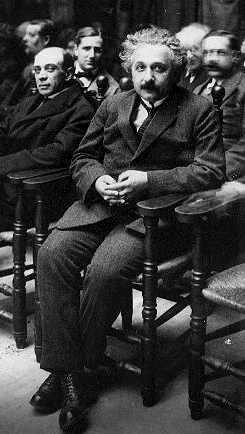
Einstein was an avid pacifist, and along with three other scientists, signed a peace manifesto to try to reconcile the sides in the First World War. Although he may have been content to work on physics in neutral Switzerland, he said "My pacifism is an instinctive feeling, a feeling that possesses me because the murder of men is disgusting. My attitude is not derived from any intellectual theory but is based on my deepest antipathy to every kind of cruelty and hatred." This is just one example of his devotion to peaceable causes. He also organized and advocated for many other causes, such as the release of political prisoners. He spoke for the defense of democracy against the horrors of Italian fascism by speaking in public, making statements to the press, and signing petitions. In 1924 he defended the radical Bauhaus School of Architecture; in 1929 he appealed the death sentences given to Arab rioters in British Palestine. Although he did not practice Judaism, Einstein campaigned against anti-semitism and atrocities committed to Jews.
Nuclear Age
Early Life
e=mc^2
Einsteinian widsom
More information
Back home
